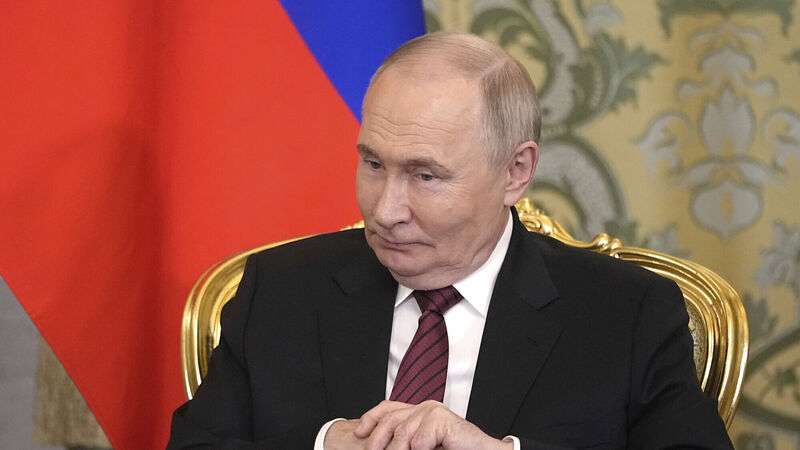Irish Examiner view: Caution over Putin’s offer of diplomacy

Vladimir Putin in the Grand Palace at the Kremlin in Moscow. It may be more pertinent that Putin’s offer of direct talks follows the visit of China’s Xi Jinping to Moscow, given that China has been an essential economic lifeline for Russia in the face of Western sanctions. Picture: Pavel Bednyakov/AP













